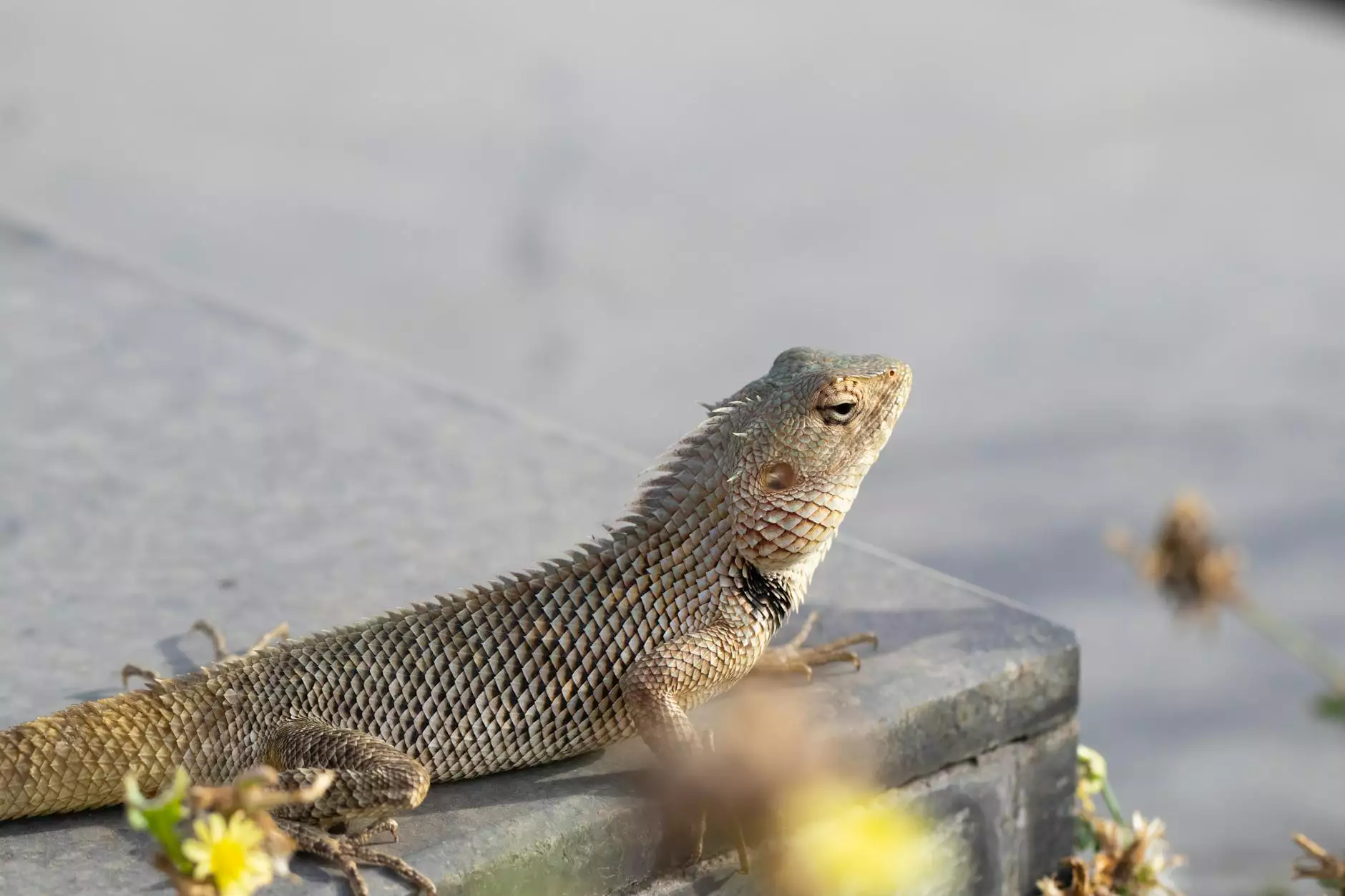The Ultimate Guide to Lizard Shops: Your One-Stop Destination for Exotic Reptiles

If you're an avid reptile enthusiast or a first-time pet owner considering adding a lizard to your family, it's essential to find a reputable source. This is where lizard shops come into play. In this comprehensive guide, we will explore what to expect from these specialized shops, the vast variety of lizards available, tips for selecting the right lizard, and essential care guidelines to ensure your new pet thrives.
Understanding Lizard Shops
Lizard shops are specialized retail stores that focus on selling lizards and other reptiles, along with the supplies necessary for their care. Unlike traditional pet stores, these shops typically offer a wider selection of lizard species, many of which are exotic and require specific care. Here are some key features of lizard shops:
- Expert Knowledge: Staff at lizard shops are usually well-versed in reptile care, providing valuable insights and guidance.
- Variety of Species: Customers can find a plethora of lizard species, from common pets like bearded dragons and leopard geckos to rare and exotic varieties.
- Specialized Equipment: Lizard shops offer specialized habitats, heating elements, UVB lights, and dietary supplements required for reptiles.
- Community and Support: Many lizard shops foster a community of reptile enthusiasts, offering events, workshops, and a platform for sharing experiences.
The Importance of Choosing the Right Lizard
When visiting lizard shops, the first step is understanding the type of lizard you want to adopt. It's crucial to consider several factors, including the lizard's size, habitat needs, dietary requirements, and temperament. Here are some popular species you might encounter:
1. Bearded Dragons
These friendly creatures are well-suited for beginners. They are social, enjoy interaction, and have a manageable size. Bearded dragons thrive on a diet of vegetables and insects, and they require a basking area for proper heat regulation.
2. Leopard Geckos
Leopard geckos are nocturnal and have a gentle temperament, making them excellent pets. They have unique patterns and colors. Their diet consists mainly of live insects, and they need a dry habitat with a hiding place.
3. Chameleons
Known for their remarkable color-changing ability, chameleons are a fascinating choice for experienced reptile keepers. They require specific humidity levels, a range of temperatures, and varied diets to thrive.
4. Crested Geckos
Crested geckos are known for their easy-going nature and are great for beginners. They mainly eat fruit-based diets and require a moist environment to thrive.
5. Blue-Tongue Skinks
These friendly lizards are easy to handle and have a unique blue tongue as a defense mechanism. Blue-tongue skinks require a varied diet of fruits, vegetables, and insects, and they thrive in a warm environment.
Factors to Consider When Choosing a Lizard Shop
Finding the right lizard shop is essential for ensuring you get a healthy pet. Here are some factors to consider:
- Reputation: Look for shops with good reviews and recommendations from the reptile community.
- Health Standards: A reputable shop keeps clean, well-maintained habitats for their reptiles. Healthy lizards will have clear eyes, active behavior, and no signs of illness.
- Customer Service: Friendly and knowledgeable staff can help ensure you make the best choices regarding care and maintenance.
- Returns and Guarantees: Look for shops that provide health guarantees and a clear return policy to safeguard your investment.
- Educational Resources: A good lizard shop will offer resources such as care sheets, books, and workshops to help you understand your new pet's needs.
Essential Care Requirements for Pet Lizards
Caring for a lizard involves understanding its unique needs for habitat, diet, and health. Here’s a breakdown of key considerations:
1. Habitat Setup
Creating a suitable habitat is crucial for the well-being of your lizard. Each species has specific requirements:
- Tank Size: Ensure your lizard has ample space. A bearded dragon, for example, requires a larger enclosure compared to a smaller species like a leopard gecko.
- Temperature Gradients: Lizards require a basking area and a cooler side in their habitat. Use heat lamps and under-tank heaters to maintain appropriate temperatures.
- Humidity Levels: Some species, like chameleons, need higher humidity, while others thrive in drier conditions. Use a hygrometer to monitor levels accurately.
- Decor: Include hiding spots, branches for climbing, and substrate suitable for your lizard's natural environment.
2. Diet and Nutrition
A balanced diet is key to your lizard's health. Understanding what your lizard eats is vital:
- Insects
- Vegetables and Fruits: Some species require a diet rich in vegetables, while others enjoy fruits. Research your lizard's dietary needs to provide the right balance.
- Supplements: Use calcium and vitamin D3 supplements to prevent metabolic bone disease, especially in growing lizards.
3. Regular Veterinary Care
Ensure your lizard receives regular check-ups with an exotic veterinarian. Preventative care can catch potential health issues early. Be observant of your lizard's behavior and health; any changes could indicate a problem.
The Growing Popularity of Lizard Ownership
As more people are becoming interested in exotic pets, the demand for lizard shops is on the rise. Here are a few reasons why lizards are becoming popular pets:
- Low Maintenance: Compared to traditional pets like dogs and cats, many lizard species require less daily maintenance.
- Unique Companionship: Lizards offer a different kind of companionship that many find fascinating and rewarding.
- Educational Value: Keeping a lizard can be an educational experience, especially for children, teaching them responsibility and respect for other living beings.
- Space-Efficient: Lizards don't require large living spaces, making them ideal for apartment dwellers.
How to Find the Best Lizard Shops Near You
Searching for quality lizard shops can be easy if you know where to look. Here are some strategies to find the best places:
- Online Research: Use search engines and social media to find lizard shops in your area. Websites like Google Maps can provide customer reviews and ratings.
- Local Reptile Shows: Attend reptile expos and shows to connect with breeders and shop owners directly.
- Community Groups: Join online forums and local reptile clubs to gain insights and recommendations from fellow enthusiasts.
- Visits and Interviews: Take the time to visit shops, ask questions, and gauge the professionalism and knowledge of the staff.
Conclusion: Embarking on Your Lizard Journey
Choosing to adopt a lizard is a big decision, but with the right information and resources, it can lead to a rewarding and fulfilling experience. Finding the best lizard shops is just the beginning of your journey into the intriguing world of reptiles. Remember to take your time researching, asking questions, and preparing your home for your new scaly companion.
As you embark on this exciting adventure, always prioritize the well-being of your lizard by understanding its needs and providing the care it deserves. With the growing popularity of reptile ownership, joining the community of lizard enthusiasts can lead to lasting friendships and shared experiences. Embrace the fascinating realm of lizards, and discover the joy they can bring to your life!



